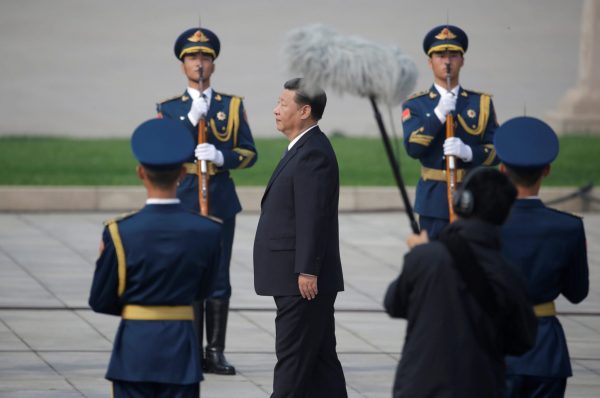This premium on order tells us a great deal about congresses and what they are actually meant to do. There is a temptation to see these large gatherings, held every five years, as something akin to political party conferences or conventions held in western contexts. But of course, the Chinese Communist Party operates in an environment where it is the only show in town. There is no need to use these events to sell a particular policy line or to try to grab public attention, or even, for that matter, to decide what to do.
Congresses are not there to present policy options or dramatic open clashes. Congresses do not mark the start of any debate, but rather come at the end, after the discussions and arguments have all been conducted behind closed doors. Whatever dissent and heated discussions might occur will have largely happened weeks or months before. Congresses in the Chinese context are best seen as large festivals of consensus, harmony and agreement. Clashes and scraps between key figures almost never happen.
The great open secret about the Congress this year, as for most of the those in the last four decades since China started its economic reforms, is that they are largely intended to be a well-rehearsed, meticulously planned play. Their principle function is to reassure and to convey harmonious, unified, elite leadership. It is in that context that they have a function and make sense.
There are occasional blips. In 2012, the very fact that the Congress slipped into November, and that a leadership line up did not emerge until after a delay of a few days, was a sign that things were not going entirely to plan. This year, we can safely expect little of that. Every effort will be placed on presenting calm, stable, almost soporifically boring predictability. This is not because China is remotely calm, stable or boringly predictable — precisely the opposite.
It is because there are such high stakes, and so much scope for problems, that the Party has to use this one major change to convey orderliness and calmness. It does not have the luxury of showcasing its internal fractures and issues in public. That would worry and scare people. It needs to appear utterly in control.
In the end, the only important information that the Congress will produce is which leaders have been promoted, which have retired, and where they occur in the pecking order. Leadership matters in modern China and elite leaders are almost proxies for particular policy options. While much work goes into spelling out factional links and networks that emerge within the elite, what is less easy to divine is the policy inclinations of those who end up being elevated. The main thing to watch is whether new leaders have a very obvious link to Xi Jinping in terms of their prior careers, and what they may have achieved in the provinces or ministries they were working in before.
The main difference will be between those associated with more liberal economic views of the market in China and those who are broadly more statist. This is about the only space for real political discussion and expressions of some kind of autonomy. Almost certainly there will be not a whisper about economic reform leading to political changes. The 2017 Congress will be a celebration of the virtues of one party rule, and of the necessity of maintaining things this way.
Chinese leaders know that the world is watching them as never before. Uncertainty about the United States has led to greater space being created for them in the international arena. Free trade, combatting climate change, outward investment and stimulating growth through allowing access to their domestic market — these are all areas where China matters more now than ever before. So the Congress this year, while primarily for a domestic audience, is also a chance to showcase the virtues of predictable one party rule to the rest of the world.
This premium on the ruthless assertion of control and order is the most instructive thing about congresses. In Xi Jinping’s China, the need to continue the ‘pro-stability’ focus of his predecessor, Hu Jintao, has not remotely gone away. The Congress will show the great paradox of a country which looks so confident and prominent while, at the same time, being a place where even the remote possibility of polite public dissent and intra-elite argument is regarded as threatening.
This prompts the nagging question of whether such congresses are symptomatic of strength or weakness. Viewers at home will have to make their own minds up. Those participating in the Congress will be concentrating too fiercely on making sure their masks don’t slip.
Kerry Brown is Professor of Chinese Studies and Director of the Lau China Institute at King’s College London.


‘In 2012, the very fact that the Congress slipped into November, and that a leadership line up did not emerge until after a delay of a few days, was a sign that things were not going entirely to plan.’
I think you’re allowed to say it now…